
Challenges ahead
The changing landscape of the children's toy market has prompted a booming business for electronic product manufacturers such as Apple and Samsung. However, it is hurting traditional toy makers.
The world's top toy vendors Mattel and Hasbro are said to be "terrified" at the thought that children no longer plump for traditional presents such as dolls and toy cars, preferring the latest technological gadgets, including iPads and Kindles, the UK's Financial Times reported.
Analysts have lowered predictions for full-year toy sales, estimated at $1.41 billion for Hasbro and $3.29 billion for Mattel, after sales to date for the year 2012 were down on the previous year.
China is the world's biggest toy manufacturing base by production. According to the National Bureau of Statistics, China exported $11 billion toy products in 2010, almost double the $5.87 billion a decade ago.
"There are challenges but, in the meantime, we see opportunities," an official surnamed Zhao with a Dongguan-based toy company, said. "When children play online games, they may want to buy gaming figure models in stores," he added.
"In addition, parents usually set limits for children playing electronic devices, over concerns for their eyesight etc. So there is still room for traditional toys," Zhao said.
But most Chinese toymakers are not well prepared for the current changes. "A large number of toy manufacturers may suffer. Only a few of them can survive," said Xiong at CIConsulting.
Social concerns over children's obsession with electronic toys have arisen. Wu Jia in Guangdong said students at his school are not allowed to bring the devices into classrooms because teachers worry they might distract them from their studies.
"Children are too young to avoid obsession with high-tech gadgets. If they indulge in these devices, it may be harmful to their healthy growth," said Wang, the Beijing mother.
 |



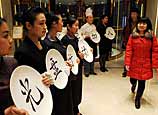
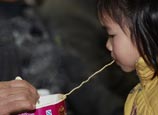

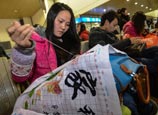
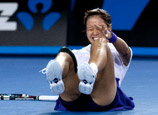
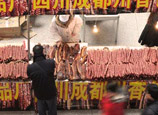







 China's weekly story (2013.01.21-01.27)
China's weekly story (2013.01.21-01.27)


![]()
